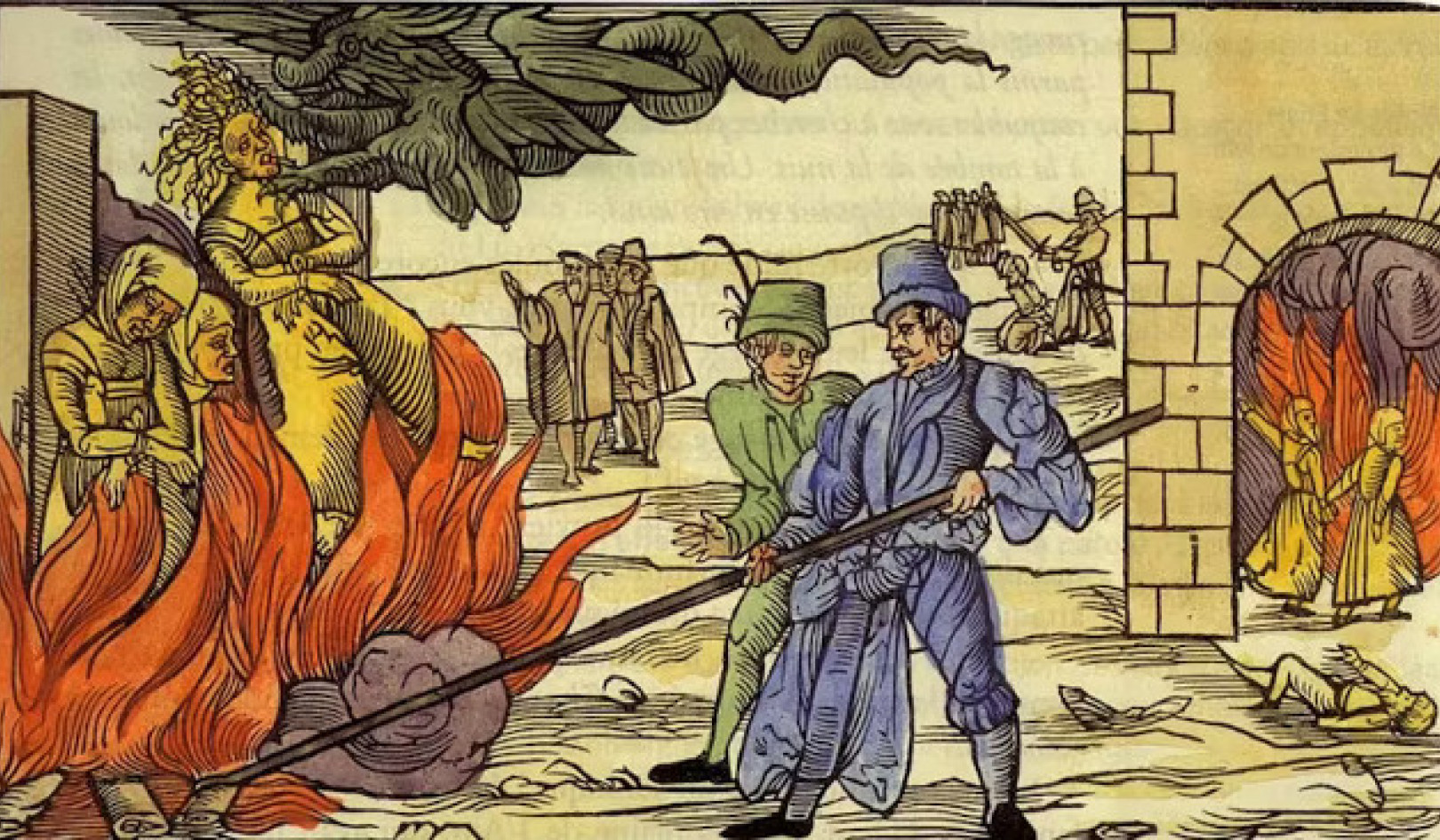
Astrology has two helpful functions. One is to identify the strengths and abilities we have which we can capitalize on. For instance, it was only by studying astrology and getting repeated encouragement from astrologers that I came to have faith in myself as a potential writer. Before that, I considered myself a lousy poet and left it at that. I'm still a lousy poet, but astrology gave me the courage to try other kinds of writing that have been more successful and fulfilling. My knowledge of astrology, then, resulted in a change in the direction of my career and life.
The second function is to help us identify the ways we create our own problems and cause unhappiness for ourselves and those around us. My belief is that planets are not responsible for our happiness or unhappiness, they only point out the ways we have been causing our self-fulfillment or self-defeat. And, if self-defeating behaviors are causing problems for us, we can use the chart as a guide to facing them honestly and directly. If we do so, we can tackle those problem areas and ultimately realize the most positive potential of every placement and every aspect in our charts. Self-defeat is far more of a problem for most of us than anything an outsider can inflict. Do you know the ways you are your own worst enemy? Traditionally, astrologers have looked at the twelfth house for the answer to this question, but I feel the whole chart should be surveyed. All those difficult sign and house placements and all those troublesome aspects will show you how you're contributing to your own problems.
The Self-defeating Patterns In Our Lives
The self-defeating patterns in our lives are like patterns you use in making dresses. The same one can be used over and over again. The dresses may look a little different because of variations in material, color, or length, but it's basically the same pattern. Likewise, the people you get involved with romantically (or, likewise, as friends, or in work situations) might look a bit different in the beginning but wind up being alike in the end. For instance, one woman who wrote to my advice column had been married three times and all three of her husbands beat her. I told her that three abusive husbands were an embarrassment of riches, that she was choosing these men, and that unless she got into therapy, I could confidently predict that the next man she got hooked up with would beat her too. My prediction wasn't based on astrology, it just stood to reason.
Once you can identify a pattern of self-defeating behavior, however, the chart can lead you to an understanding of exactly what is behind it and how to begin correcting it. A problem in love? Look at Venus, the seventh house, and its ruler. Communication blocks keep you from being understood? Look at Mercury, the third house, and its ruler. Trace it all the way back to its roots-it's not enough to say that Mercury in Scorpio shows that you are reserved about expressing your feelings outwardly. How did you get that way? The chart can tell you that, too, if you look at it psychologically.
One of the more common roots of self-defeat and probably the most devastating is self-hatred. Self-hatred is one of the most painful emotions you can feel. It is also one of the most crippling, because when you hate yourself, you act in ways that lead others to reject you or in self-defeating ways that cause you to fail. The rejections and failures then make you hate yourself even more. How can you break out of this cycle? By trying to find out what causes the self hatred and then getting past it to accept and finally to love yourself. I doubt if any psychotherapist would quarrel with that, and psychotherapy may be needed to accomplish this deceptively simple-sounding thing. I do think, however, that astrology and a thorough understanding of your chart can help in this process. The person's natal horoscope can give a short-cut by identifying those nebulous, generally unconscious, and often irrational-seeming conflicts within the person which lead to self-hatred.
Sometimes we only get at our self-hatred by indirect means -- examining what we hate in others. We have all probably had the experience of taking an immediate and powerful dislike to someone we just met. . . and maybe had it pointed out to us none too kindly that we disliked that person precisely because they were too much like us in some unpleasant way. What we reacted to so strongly in them was actually something in ourselves that we don't like to face up to.
This goes for sun signs as well. Richard Ideman, a profound astrological thinker, has pointed out that the signs you hate tell a great deal -- not necessarily about the sign per se -- but about yourself. By the psychological mechanism of projection, we "disown" parts of ourselves that we don't approve of, or are uncomfortable with, and assign them to someone or some group outside ourselves. "Me? Yearning to be passive and helpless instead of so darned self-sufficient? No, it's those Pisces!" (Stereotypes and prejudices are based on projections such as these, and perhaps astrological prejudices could become the prejudices of the New Age, now that we're "too enlightened" for the old ethnic ones.)
You may be amused by an illustration of astrological projection, the mechanism which Richard Ideman has identified so well, at work in one of the astrology classes I taught, a group of ardent feminists. A couple of the students began talking about the signs they hated. On instinct, I asked one of them, "What sign do you dislike most?"
"Oh, Geminis! They're disgusting!"
"What sign is your father? " I hazarded.
"Gemini! "
I went around the room like that, asking each of them what sign she disliked most. Dramatically, each one of them, myself included, named the sun sign of her father. Now this would only be an amusing curiosity, possibly revealing something about the roots of our feminism, if it were not for one tragic fact. Our parents, as shapers of ourselves, are part of our charts and part of our character. I may not be a Pisces, as my father was, but my Sun is in a water sign and located in the twelfth house, making me not unlike him. The fact that I generally do not like Pisces says that I dislike a very important part of myself, and that I need to get in touch with that part and reconcile it with the rest of me in order to be truly healthy.
You, too, are probably carrying around in your chart the signs you love to hate. Look for them in unsuspected places. If you have Sun conjunct Jupiter but can't bear Sagittarians, look out?you are practically a Sag yourself. If you hate Aries with a passion but have Mars on the Ascendant, then you hate the aggressive, competitive part of yourself. Can't stand Gemini? Isn't that where you have your South Node? Virgos set your teeth on edge? Strange, with a stellium in the sixth house, you have such a lot in common! Look for the signs you hate in your own chart? you may find out you are projecting an important part of yourself.
Sunday School And Confessional Brand Of Self-hatred
Then there is what I call the Sunday School or confessional brand of self-hatred. . . so named because it happens periodically, when we feel called upon to examine our faults, and because it generally has a moralistic cast to it. 'Why am I so BAD? What makes me do these terrible things? It is BAD to be so competitive!" Generally in these cases what we are doing is identifying ourselves with one part of our chart at the expense of another (often major) part. The part we identify with and want to be like is often that part our parents or society approved of as "good," and the part of ourselves we disown is what our parents told us was "bad." Cultural conditioning plays its part too . . . in our culture, it is considered "bad" or "unnatural" if a man shows strongly Venusian characteristics. Actually a strong Venus in a man's chart is neither good nor bad, but only his nature.
 The side of us our parents approved of is often reflected in our rising sign or ascendant. The ascendant shows our ways of trying to get along with others?our front or our tools for getting along in the world. The ascendant is not our essential self . . . the Sun and Moon are far more basic to our character. It is dismaying to me how many people are totally identified with their ascendant. A terribly meek double Leo friend?Sun and Moon in Leo?was much more receptive to astrology once she found out she had Pisces rising. "I always thought I was much more like a Pisces. Why, Leos aren't nice people!" A double Leo who shows none of that Leo at all is a Leo in a heck of a lot of trouble. I call that kind of trouble "getting trapped in your ascendant. "
The side of us our parents approved of is often reflected in our rising sign or ascendant. The ascendant shows our ways of trying to get along with others?our front or our tools for getting along in the world. The ascendant is not our essential self . . . the Sun and Moon are far more basic to our character. It is dismaying to me how many people are totally identified with their ascendant. A terribly meek double Leo friend?Sun and Moon in Leo?was much more receptive to astrology once she found out she had Pisces rising. "I always thought I was much more like a Pisces. Why, Leos aren't nice people!" A double Leo who shows none of that Leo at all is a Leo in a heck of a lot of trouble. I call that kind of trouble "getting trapped in your ascendant. "
A client who was trapped in her ascendant was a Gemini with Sun conjunct both Uranus and Saturn. She had Cancer rising, and this was what most people saw of her?mother to the world. When I pointed out to her that she really didn't have a motherly bone in her body, she admitted that she really resents having to take care of all those people. "But it's BAD to be the way you described my Sun! " It took her a long time to accept that not only was it not bad for her to be her Sun, it was more real and more truly herself. I told her I felt she was brilliant, that she was wasting a lot of time mothering people who did not in the least appreciate being mothered, and that she would do a lot more for mankind in the end if she concentrated on developing the tremendous potential of her Sun.
Much self-hatred, then, can come about when the basic natures of your Sun and Moon or Ascendant are in disagreement. Another source can be hard aspects like squares or oppositions. A square, in particular, demands a resolution of the conflict within, and all too often a phony resolution comes about by identifying with one of the planets in the square against the other. Which side of the square you will take is somewhat unpredictable, possibly depending on the relative strengths of the two planets. The other side will also come out, however, perhaps in a disguised or unconscious manner that causes you to undo what you are consciously working toward.
Let us take, as an example, two people who have Mars square Neptune. The conflict may be "resolved" in two different ways, depending on their upbringing. A person, brought up in a deeply religious home where the child's natural competitiveness and aggression are regarded as "bad" may suppress open competition and compete in religious fanaticism?becoming a "holier than thou" type or an evangelist, for what is evangelism but a disguised lust for conquest? The other person with Mars square Neptune may have been brought up in a home which was terribly competitive and ridiculed compassion and spirituality, and may resolve the conflict by making a religion out of war and patriotism. Note how in both cases a strong hint of the suppressed planet comes through in a disguised way. A suppressed (in technical terms, repressed) planet is still very active, on the unconscious level, where it can often work in an unhealthy and self-defeating way. There are healthy ways of resolving the Mars-Neptune conflict, but not by ganging up on one of them and glorifying the other.
What To Do When Two Planets Conflict
When you have two planets in conflict with each other or your Sun or Moon clashes with your ascendant, what can you do? Well, first stop making value judgments! The two things in conflict are both valid parts of yourself. They are neither intrinsically good nor bad, they just are. In order to find health and a degree of comfort, you must be fully aware of the needs and drives represented by both sides of the conflict and find some ways for both of them to be satisfied. For instance, I once did a chart reading for a woman with Sun in Capricorn and Moon in Aquarius. She had enormous responsibilities and drove herself to exhaustion, never taking vacations. Meanwhile, her Moon in Aquarius yearned for freedom?to break away, to do kinky things, to get rid of all those responsibilities. The conflict was beginning to affect her health. I explained all this to her, and, partly in jest, I wrote a realistic looking prescription: "Rx: One free weekend a month, getting away from it all." She was so relieved at getting permission to take care of her own needs that she framed it and now faithfully refills her prescription once a month.
By becoming familiar with all the parts of your chart you will know yourself better. Recognize that each of the symbols in the chart represents a valid part of you that exists and must find an expression. Repressing or pushing aside some part of yourself is only asking for trouble - emotional or physical trouble - or else "trouble" from the outside world that you bring on yourself. Remember that any repressed part of yourself will find expression in disguised, unconscious ways that may be unhealthy for you. Perhaps it will help you to accept yourself better if you get to understand the positive side of each planet, sign, house, and aspect. Your Mars in Scorpio in the third may lack tact, but you can work on that?what it does do is give you a very keen, analytical mind. . . a precious gift, for sure.
Some self-dislike can be valid. . . if you are expressing only the negative side of something in your chart. But disliking something about yourself and then going to work on it is a much healthier response than brooding on something and letting it grow to self-hatred. Self-hate and guilt are immobilizing and non-productive. Working toward a positive level of expression of your chart and its difficult points will change your image of yourself, and your self-love will grow. Realize, however, that we can exist at many different levels of functioning at the same time. Some of us may develop more quickly in the mental areas (Mercury, Uranus) than in the emotional areas (Moon, Neptune), while others might develop more fully in the relationship areas (Venus) first. Therefore, it doesn't make sense to judge ourselves harshly or to compare ourselves to others. We should also understand that it is unrealistic to expect perfection, and that it is very human to regress (go backwards) a little in times of stress in order to restabilize and to recharge before taking another forward step for growth.
Another source of self-hatred lies in faulty definitions. It is the old joke: "He says I'm stingy; I say I'm a good manager". . . only in reverse. We define ourselves, often, in very negative and uncharitable ways. . . not seeing that the very things we see as weaknesses, others may see as strengths. The oyster, for all we know, may regard that pearl as a hideous while we regard it as a precious jewel. Likewise, a person with Mercury in Taurus may regard it as a defect that her thinking is very concrete. . . Others may consider her quite refreshingly down to earth and sensible. It's all in your definitions of yourself. That's why it can be quite helpful, even for an advanced student of astrology, to have your chart done several times by others who may be able to give different perspectives on you and foster a more positive self-definition.
Take a long view of things also. The qualities that start off as weaknesses often develop into tremendous strengths, as we try so hard to compensate for them. (This is often the case with the house and sign your Saturn falls in.) You need to periodically re-define yourself. By hard work, you may have already overcome some of the weaknesses you are still feeling inferior about. Let your consciousness catch up with your growth. Or, you may still be in the process -- we are always in process -- of overcoming some of them, but at least see where you are in that process and how far you've come.
How To Devote Your Time
Other parts of ourselves that we regard as weaknesses are merely the consequences of specialization. The more time and energy you devote to any one thing, the less you have for something else, purely as a matter of course. I feel badly sometimes that I can't paint or draw, but I paint and draw with words, because that is where I have chosen to specialize. People with a stellium (a group of three or more planets) in one sign or house, or with Sun and Moon in one sign or house, or who have most of their planets in one quadrant of the chart, are especially prone to overspecialization. If you have a chart like this, you will find a great deal of your energy concentrated in one area of life.
 Naturally, you will develop more skill and ability in that area of concentration and may consequently be lacking in other areas our culture may define as desirable or important. But why hate yourself for those lacks? Only by some degree of specialization and devotion can you build something really worthwhile. Many of the greatest talents of our time are one-sided people because they devote so much time to practicing their art. But to hate themselves for being one-sided? That's as silly as a great neurosurgeon hating himself because he can't pull teeth.
Naturally, you will develop more skill and ability in that area of concentration and may consequently be lacking in other areas our culture may define as desirable or important. But why hate yourself for those lacks? Only by some degree of specialization and devotion can you build something really worthwhile. Many of the greatest talents of our time are one-sided people because they devote so much time to practicing their art. But to hate themselves for being one-sided? That's as silly as a great neurosurgeon hating himself because he can't pull teeth.
Self-hatred can also be a rather strange inversion of self-love. "Look at me! I'm so TERRIBLE! I'm the biggest monster on earth!" How very important that makes you, doesn't it? Neptunians often fall into this pattern -- or Pisces-Leo combinations like my "meek" double Leo friend, who loved to dramatize her own sense of worthlessness. I asked a question in a poem once, and I still think it's a good one: "why is true humility so foreign to the self-hating?" Find some other way of being important besides being miserable.
If you behave in self-defeating ways, start now to overcome these crippling patterns. In some cases, psychotherapy may be needed, but begin by understanding your natal chart in depth. It is a priceless tool for gaining perspective on the self, for finding the roots of conflict and self-defeat within us. By discovering the sources of self-defeat and self hatred in your chart, you will be able to free the life affirming parts to work more openly. Only by accepting all parts of yourself and allowing them positive expression can you become a healthy, fully integrated person.
 This article was excerpted with permission from
This article was excerpted with permission from
"An Astrological Guide to Self-Awareness"
by Donna Cunningham.
Recommended book:
How to Read Your Astrological Chart: Aspects of the Cosmic Puzzle
by Donna Cunningham.
 Donna Cunningham lays out a workable system for reading charts in this latest of her twelve published volumes. It isn't a cookbook, but more of a driver's manual, as she offers her unique spin on the favorite question asked of conference speakers: - How do you interpret a chart? - The book offers fresh and often pungent insights into planetary types, missing or weak features, and other facets of the horoscope that shape our character and actions. Index. Bibliography. Charts.
Donna Cunningham lays out a workable system for reading charts in this latest of her twelve published volumes. It isn't a cookbook, but more of a driver's manual, as she offers her unique spin on the favorite question asked of conference speakers: - How do you interpret a chart? - The book offers fresh and often pungent insights into planetary types, missing or weak features, and other facets of the horoscope that shape our character and actions. Index. Bibliography. Charts.
About The Author
 Donna Cunningham has a master's degree in social work and over 25 years of counseling experience. She is the author of numerous books. She has written eleven books on astrology and other metaphysical topics, including Healing Pluto Problems, The Moon in Your Life, and the classic basic text, An Astrological Guide to Self-Awareness. Her latest book, How to Read Your Astrological Chart, was released by Samuel Weiser in October 1999. Donna does private consultations by phone. She resides in Portland, Oregon and can be contacted for consultations at 503-291-7891 or by visiting her website at https://skywriter.wordpress.com/
Donna Cunningham has a master's degree in social work and over 25 years of counseling experience. She is the author of numerous books. She has written eleven books on astrology and other metaphysical topics, including Healing Pluto Problems, The Moon in Your Life, and the classic basic text, An Astrological Guide to Self-Awareness. Her latest book, How to Read Your Astrological Chart, was released by Samuel Weiser in October 1999. Donna does private consultations by phone. She resides in Portland, Oregon and can be contacted for consultations at 503-291-7891 or by visiting her website at https://skywriter.wordpress.com/
Related Books
at InnerSelf Market and Amazon




























